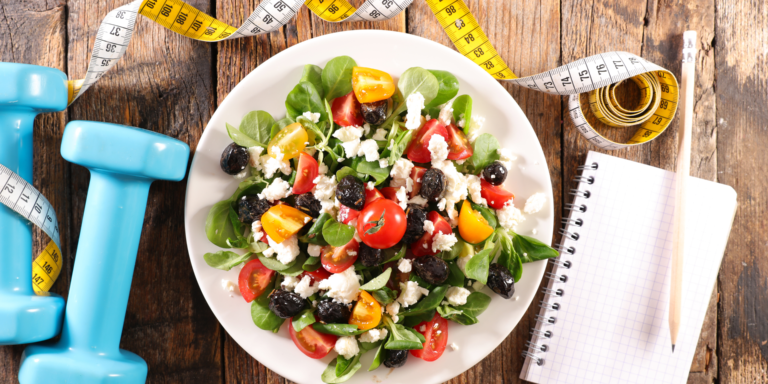Introduction:
Optimal nutrition is crucial for teenagers through rapid growth and development. Good nutrition provides the necessary nutrients for the body to function correctly and support healthy growth and brain development. Teenagers require a balanced diet with adequate carbohydrates, protein, fats, vitamins, and minerals for optimal health and well-being.
Importance of optimal nutrition for teenagers:
The teenage years are a critical period of development and growth, and good nutrition is essential for teenagers to reach their full potential. Nutrient deficiencies can lead to stunted growth, delayed puberty, and a weakened immune system, making teenagers more susceptible to infections and illnesses. Additionally, optimal nutrition can significantly impact a teenager’s mental health and well-being.
Studies have shown that a balanced diet rich in fruits, vegetables, whole grains, lean protein, and healthy fats can improve mood and reduce symptoms of depression and anxiety.
In the UK, the targeted population for optimal nutrition is teenagers between 13 and 19. According to the British Nutrition Foundation, teenagers in the UK have been found to have a poor diet, with low consumption of fruits, vegetables, and whole grains, and high consumption of sugary drinks, snacks, and fast food. This poor diet can lead to nutrient deficiencies and contribute to the development of chronic diseases such as obesity, type 2 diabetes, and cardiovascular disease. Therefore, educating teenagers and their families about the importance of a balanced diet and the health consequences of poor nutrition is essential.
In conclusion, optimal nutrition is crucial for teenagers’ growth, development, and overall health and well-being. With a balanced diet, teenagers can reach their full potential and reduce the risk of chronic diseases later in life. The targeted population for optimal nutrition in the UK should be teenagers between 13 and 19, at risk of developing poor dietary habits that can lead to adverse health outcomes.
The basics of a healthy diet for teenagers:
As a teenager, it can be easy to fall into the trap of eating whatever is convenient or tastes good. However, it is important to remember that what you eat directly impacts your overall health and well-being. Eating a balanced and healthy diet can help you feel more energized, improve your mood, and even reduce your risk of developing chronic diseases later in life.
So, what does a healthy diet for teenagers look like? First and foremost, it is important to consume a variety of foods from all the different food groups. This includes fruits, vegetables, whole grains, lean proteins, and healthy fats. Eating a variety of foods ensures that your body is getting all the nutrients it needs to function properly.
The importance of micronutrients (vitamins and minerals) and where to find them
In addition to macronutrients, micronutrients such as vitamins and minerals are also important to consider. These nutrients help your body carry out essential functions, such as maintaining strong bones and a healthy immune system. Good sources of vitamins and minerals include fruits, vegetables, whole grains, lean proteins, and dairy products.
It is important to remember that no one food or nutrient can provide all the nutrients your body needs. That’s why it is important to eat a variety of foods and choose nutrient-dense options as much as possible. Making small changes to your diet, such as swapping out sugary drinks for water or incorporating more fruits and vegetables into your meals, can make a big difference in your overall health.
As a teenager, you are likely to be active, growing, and in need of a well-balanced diet to keep you healthy. The food you eat has a significant impact on your physical health, and it’s essential to understand the importance of making healthy food choices.
The first thing to consider is the role of nutrition in maintaining a healthy weight. Your body needs the right amount of nutrients to function correctly, and consuming too much of anything, including unhealthy foods, can lead to weight gain. A balanced diet consisting of plenty of fruits and vegetables, lean proteins, and healthy fats can help you maintain a healthy weight.
It’s also important to understand the link between nutrition and chronic diseases like heart disease and diabetes. Poor food choices, such as consuming foods high in saturated fats, sugars, and salt, can contribute to the development of chronic diseases. Consuming these foods over an extended period can increase the risk of developing health conditions such as high blood pressure, high cholesterol, and Type 2 diabetes.
The impact of food choices on physical health
To ensure you make healthy food choices, it’s essential to understand the food groups and the nutrients your body needs. For example, carbohydrates are an essential source of energy, but not all carbohydrates are equal. Complex carbohydrates like whole grains, fruits, and vegetables are healthier than simple carbohydrates like candy, soda, and processed foods.
Proteins are another essential nutrient that helps build and repair tissues, and consuming lean proteins like fish, poultry, and legumes is a healthier option than red meats and processed meats like hot dogs and sausages.
Fruits and vegetables contain vitamins, minerals, and antioxidants that help maintain good health. Eating colorful fruits and vegetables daily can help reduce the risk of chronic diseases and improve overall health.
Finally, healthy fats like those in nuts, seeds, and avocados are essential for healthy brain function and weight maintenance. However, consuming these fats in moderation is essential as they are high in calories.
The impact of food choices on mental health
As a teenager, it’s important to understand that the food you eat affects your physical and mental health. The link between nutrition and mental health is well established, with research indicating that specific food choices can positively or negatively impact our emotional well-being.
Consuming a diet that supports brain function can go a long way in promoting good mental health. Some of the best foods for brain function include omega-3 fatty acids found in oily fish such as salmon, mackerel, sardines, walnuts, flaxseed, and chia seeds.
Protein-rich foods such as chicken, turkey, eggs, and beans are also essential for brain health. These foods contain amino acids, the building blocks of neurotransmitters that regulate mood and emotions.
Eating a diet rich in fruits and vegetables can also support brain function and mental health. These foods are high in vitamins, minerals, and antioxidants, which can help reduce inflammation in the brain and promote good mental health.
On the other hand, consuming a diet high in processed and sugary foods can have a negative impact on mental health. These foods can cause a spike in blood sugar levels, leading to energy crashes and mood swings. They also lack essential nutrients required for good brain function and can lead to inflammation and oxidative stress in the brain.
It’s also important to note that consuming too much caffeine and alcohol can negatively impact mental health. While caffeine can provide a temporary energy boost, excessive consumption can lead to anxiety and insomnia. Similarly, excessive alcohol consumption can cause depression and anxiety.
Common misconceptions about nutrition
As a teenager, you may have heard a lot of conflicting information about what constitutes a healthy diet. With so many different opinions and trends out there, it can be hard to know what to believe. In this article, we’ll be discussing some common misconceptions about nutrition, and why they may not be entirely accurate.
Myth #1: Carbs are bad for you Carbohydrates are one of the three macronutrients that make up our diet, along with protein and fat. Despite what some popular diets may suggest, carbs are not inherently bad for you.
They are an essential source of energy for your body and brain. The key is to choose the right kinds of carbs. Whole grains, fruits, and vegetables are all great sources of complex carbs that provide sustained energy and important nutrients. On the other hand, highly processed carbs like white bread, sugary cereals, and pastries can cause spikes in blood sugar and lead to weight gain over time.
Myth #2: All fats are unhealthy Like carbs, fats have gotten a bad rap in the past. But the truth is, some fats are good for you. Unsaturated fats, found in foods like avocados, nuts, and olive oil, can help lower your risk of heart disease and improve brain function.
On the other hand, saturated and trans fats, found in foods like butter, fried foods, and processed snacks, can increase your risk of heart disease and other health problems. It’s all about choosing the right types of fats in moderation.
Myth #3: You need to avoid all sugar While it’s true that consuming too much-added sugar can lead to health problems like obesity and diabetes, it’s important to remember that not all sugar is created equal. Natural sugars found in fruits, vegetables, and dairy products are an important part of a healthy diet. The key is to limit your intake of added sugars, which are often found in processed foods like candy, soda, and baked goods.
Conclusion:
As a teenager, you are going through many physical and mental changes. These changes require proper nourishment for your body and mind to function optimally. This is why paying attention to what you eat and making healthy food choices is crucial.
A balanced diet is essential for teenagers as it helps maintain healthy growth and development, improves concentration and cognitive function, and boosts energy levels. Nutrient-dense foods such as fruits, vegetables, whole grains, lean protein, and healthy fats should make up most of your meals.
Eating a healthy diet also reduces the risk of developing chronic diseases such as obesity, heart disease, and diabetes later in life. Additionally, a healthy diet can help prevent mood swings, anxiety, and depression, which are common among teenagers. Apart from eating healthy, regular physical activity is also essential for maintaining good health. Engage in sports, dancing, or hiking to keep your body active and fit.
It is important to note that good nutrition and physical activity go hand in hand. While exercise is essential for overall health, it is not a substitute for a healthy diet. You must fuel your body with the right nutrients to support your physical activity and keep your body functioning optimally.
About The Author
Gymate is a not-for-profit UK initiative to inspire teenagers, young people, and anyone new to exercise to start exercising at home. If you have enjoyed this Blog, check out our other Blogs offering health and fitness advice. If you’re ready to start exercising Gymate workout pages are a good place to start. Looking for stylish active wear / athleisure wear? Our cross ownership company www.gymate-pro.com offers a wide range of Gymate branded active and everyday wear.
References:
- British Nutrition Foundation. (2022). Teenagers. Retrieved from https://www.nutrition.org.uk/nutritionscience/life/teenagers.html
- NHS. (2022). Healthy eating for teenagers. Retrieved from https://www.nhs.uk/live-well/eat-well/healthy-eating-for-teens/
- Eatwell Guide. (2022). Retrieved from https://www.nhs.uk/live-well/eat-well/the-eatwell-guide/
- Public Health England. (2022). National Diet and Nutrition Survey. Retrieved from https://www.gov.uk/government/collections/national-diet-and-nutrition-survey
- Change4Life. (2022). Healthy Eating. Retrieved from https://www.nhs.uk/change4life/food-facts/healthier-snacks-for-kids
- The Association for UK Dietitians. (2022). Healthy eating for teenagers. Retrieved from https://www.bda.uk.com/resource/healthy-eating-for-teenagers.html
- British Heart Foundation. (2022). Healthy eating for teenagers. Retrieved from https://www.bhf.org.uk/informationsupport/heart-matters-magazine/nutrition/healthy-eating-for-teens
- The Nutrition Society. (2022). Adolescents. Retrieved from https://www.nutritionsociety.org/life-course/adolescents
Gymate is a not-for-profit UK initiative to inspire teenagers, young people, and anyone new to exercise to start exercising at home. If you have enjoyed this Blog, check out our other Blogs offering health and fitness advice. If you’re ready to start exercising Gymate workout pages are a good place to start.







1 thought on “How To Achieve Your Optimal Nutrition For Teens”
Thank you so much for reading our blog. We have lots of other Blogs avail at http://www.gymate.uk/blogs
Comments are closed.